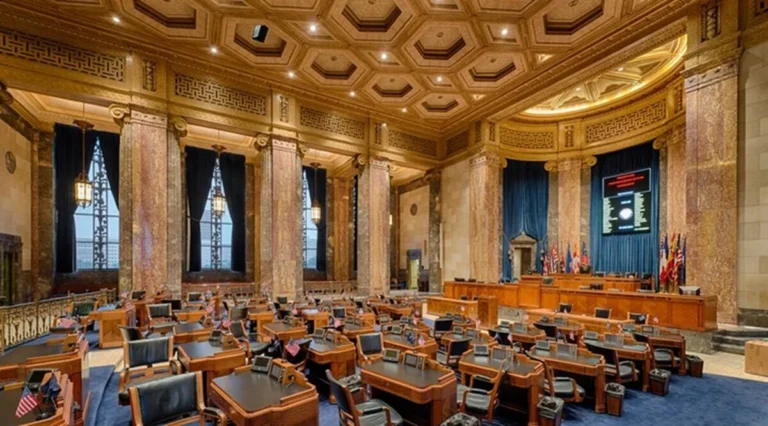(The Center Square) − Louisiana House Speaker Phillip DeVillier issued a warning Wednesday against the Legislature’s growing reliance on task forces, as lawmakers debated a resolution calling for further study of carbon sequestration — a topic that has sparked fierce debate in the 2025 session.
The remarks came after Rep. Charles Owen, R-Rosepine, introduced a resolution directing the House Natural Resources Committee and several state agencies to study whether Louisiana has adequate tools to model the potential impacts of underground carbon storage — a process known as carbon sequestration.
Rather than proposing yet another task force, Owen said he deliberately routed the request through a standing committee.
“This is a resolution simply asking for the state of Louisiana to look at something and decide if they want to put their stamp on something,” Owen said. “And if you’re fortunate, this is the last time you hear the words ‘carbon sequestration’ in this chamber this year. And everyone should applaud.”
DeVillier used the moment to call attention to what he described as a resource-straining trend.
“We see a lot of members setting up resolutions to request certain special task forces,” DeVillier said from the dais. “But what Rep. Owen did yesterday and again today was ask a committee that’s already set up to study something. And I just want us to be aware that every time we set up a task force, it requires staff, it requires members.”
In the current session, lawmakers have created 30 task forces. According to legislative records:
- Eleven of those resolutions have been sent to the governor or secretary of state.
- Five are subject to call as of Wednesday
- One was the subject of a Senate conference committee report considered Wednesday.
- One is pending House referral as of Wednesday.
- Six were signed by the House Speaker on Wednesday.
- Three passed the Senate Tuesday.
- Three passed the Senate Wednesday.
The increasing number of study groups has implications for legislative staff and budgets. The state general fund will spend $61.1 million in 2025 to cover salaries and expenses for members, officers, and staff of the Louisiana House and Senate — up from $56.7 million in 2022 and $50.7 million in 2019.
It is unclear if the increase in staff salaries is correlated with an increase in task forces.
DeVillier noted that while task forces are sometimes necessary, lawmakers should be more discerning.
“We do have standing committees to look at the things that we have looked at. It’s difficult on staff when we set up additional task forces,” DeVillier said.
Owen likened the need for proper modeling tools to national security exercises from the 1990s that simulated the effects of chemical or biological weapons.
“We built massive buildings out in the desert in New Mexico and blew things up,” Owen said. “We put chemical stimulants in them to see how far they went.”
Now, he said, Louisiana must take the same approach with carbon.
“This is something that has not been done in the United States except in one place, and that’s in Illinois. There’s a little bit stored up in Wyoming,” Owen said. “Before we put this in the ground under Representative (Dewith) Carrier’s home, we need to know where it’s going to go. And I don’t mean within a broad degree of certainty. I mean a tight, reasonable degree.”
Owen’s resolution calls for the Department of Natural Resources, the Department of Environmental Quality, and academic institutions to assess whether modeling tools exist — and, if not, how long it would take to develop them.

